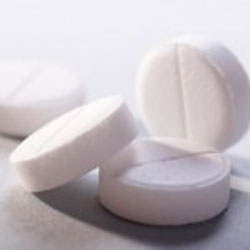 The FDA has concluded that the data do not support the use of aspirin as a preventive medication by people who have not had a heart attack, stroke or cardiovascular problems, a use that is called ‘primary prevention.’ In such people, the benefit has not been established but risks – such as dangerous bleeding into the brain or stomach – are still present.”-FDA website
The FDA has concluded that the data do not support the use of aspirin as a preventive medication by people who have not had a heart attack, stroke or cardiovascular problems, a use that is called ‘primary prevention.’ In such people, the benefit has not been established but risks – such as dangerous bleeding into the brain or stomach – are still present.”-FDA website
If you are one of the 40 million Americans who take an aspirin every day, you may want to heed the latest warning from the US Food and Drug Administration (FDA). After many decades of promoting aspirin, the FDA now says that if you have not experienced a heart problem, you should not be taking a daily aspirin-even if you have a family history of heart disease. This represents a significant departure from FDA’s prior position on aspirin for the prevention of heart attacks.
Evidence in support of using aspirin preventatively has gone from weak to weaker to nonexistent. Recent scientific studies have uncovered a number of serious side effects, suggesting that whatever aspirin may offer may be overshadowed by its risks, especially when safer natural alternatives exist. Just because aspirin is an over-the-counter drug and has been around for more than a century does not mean that it’s harmless.
Studies Show Aspirin Is a Dismal Failure at Preventing Heart Attacks!
Aspirin Increases Your Risk of Bleeding: aspirin interferes with your platelets-the blood cells that allow your blood to clot. According to one article, long-term low-dose aspirin therapy may double your risk for a gastrointestinal bleed.
Aspirin also increases your risk for a brain bleed, especially if you are older.
Regular aspirin use also destroys the lining of your gastrointestinal tract, increasing your risk for duodenal ulcers, H. Pylori infection, Crohn’s disease, diverticular disease, inflammatory bowel disease (IBD), and intestinal perforations.
- Routine aspirin use has been associated with even broader health problems, such as:
- Increased risk of one type of breast cancer in women (ER/PR-negative) o Increased risk of kidney failure o Cataracts, macular degeneration, and blindness.
- Hearing loss and tinnitus
- Erectile dysfunction: Aspirin and other NSAIDs have been linked to a 22 percent increase in your risk of erectile dysfunction (ED), according to Kaiser researchers who studied more than 80,000 men
*Information taken from: Mercola.com: FDA Reverses Its Position On Daily Aspirin.
